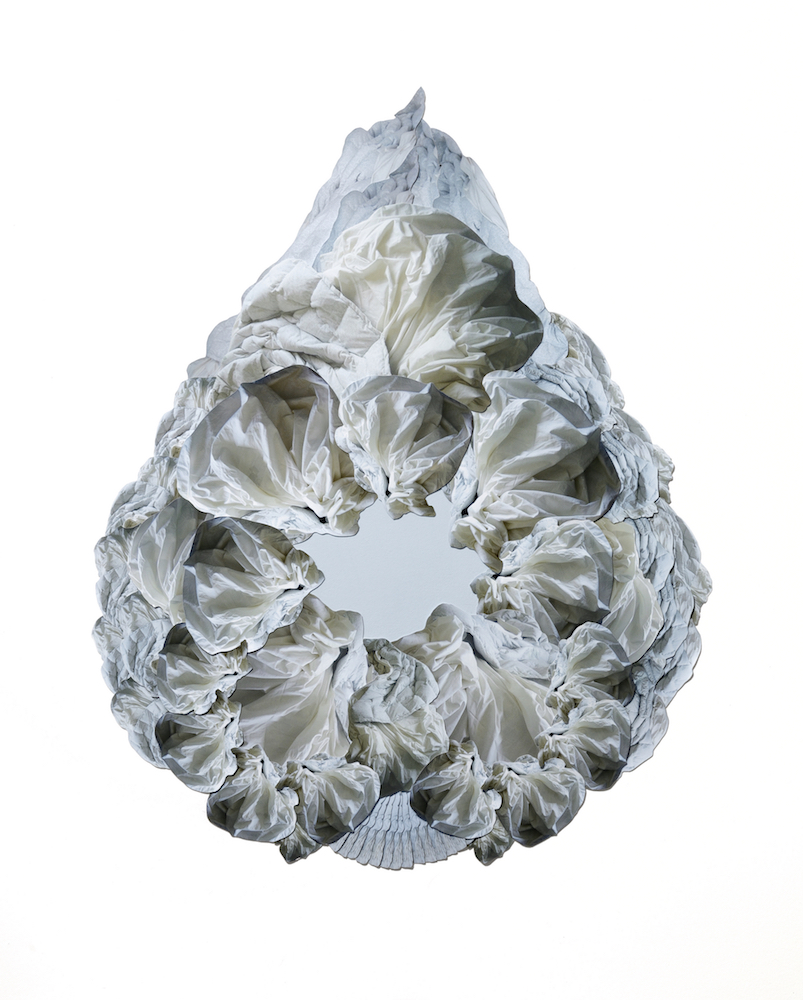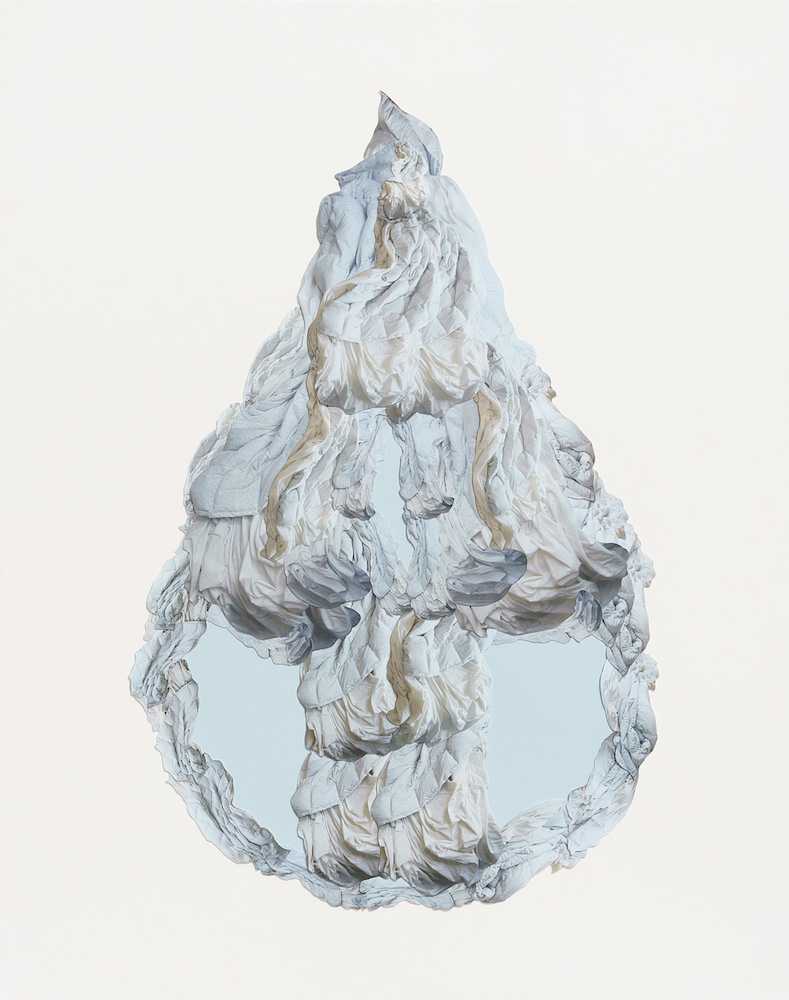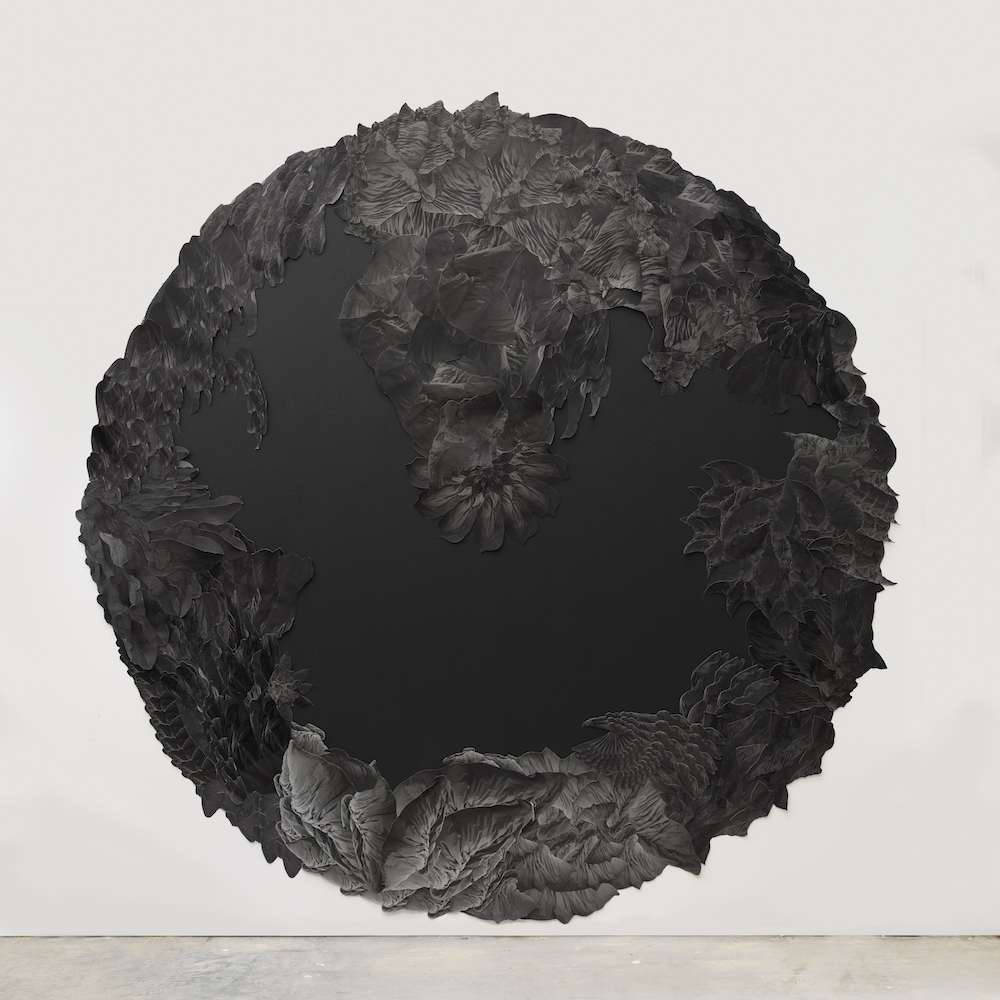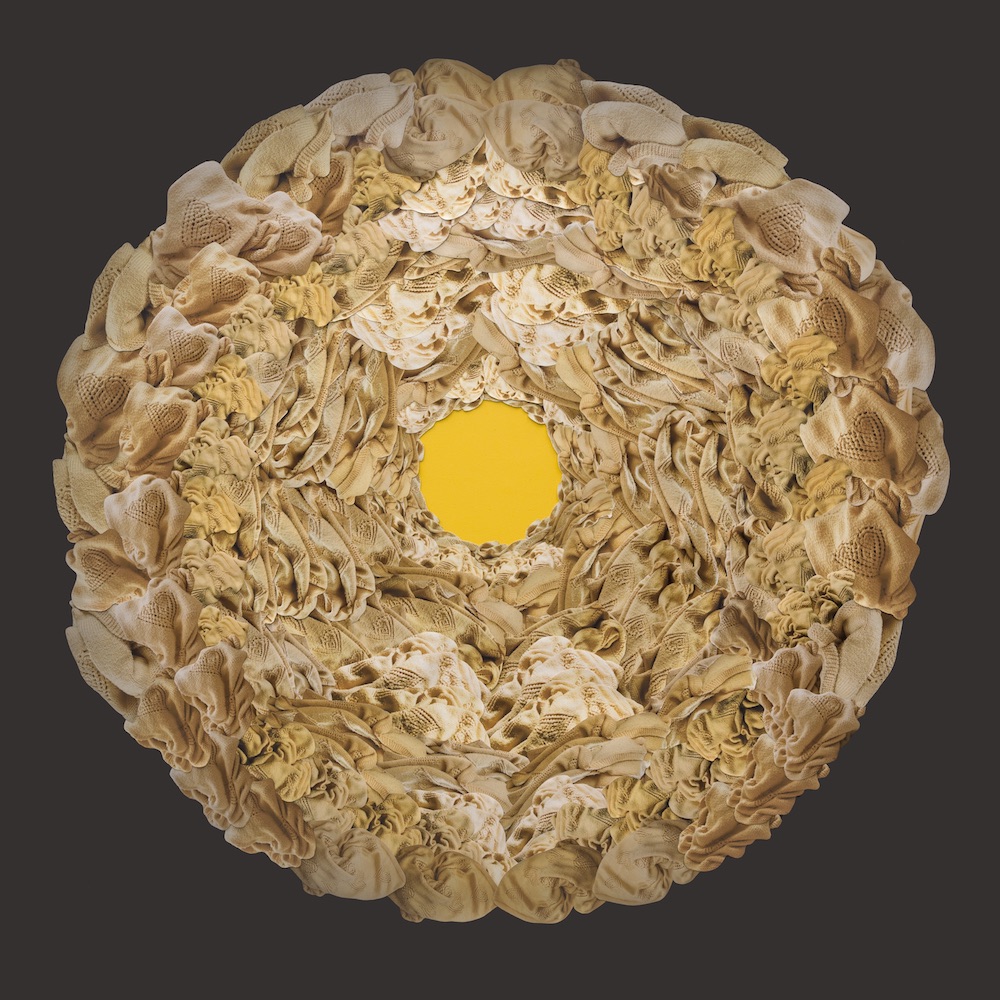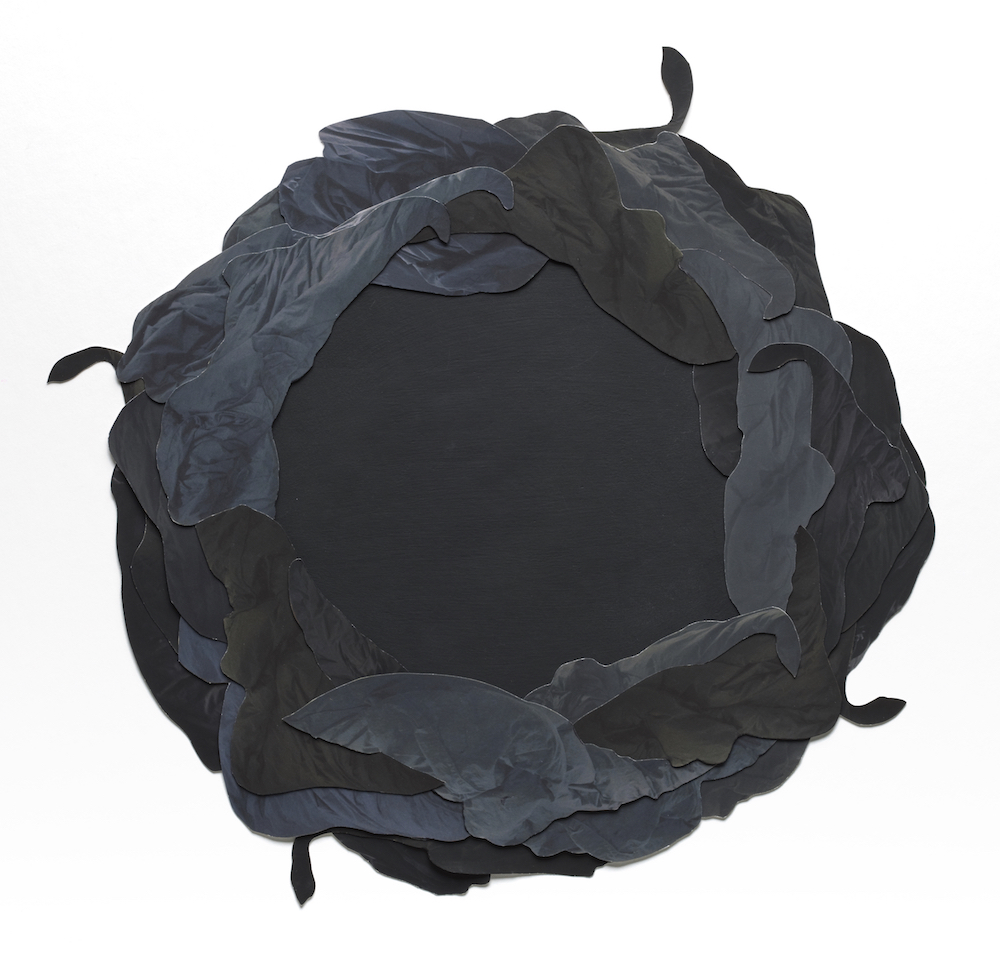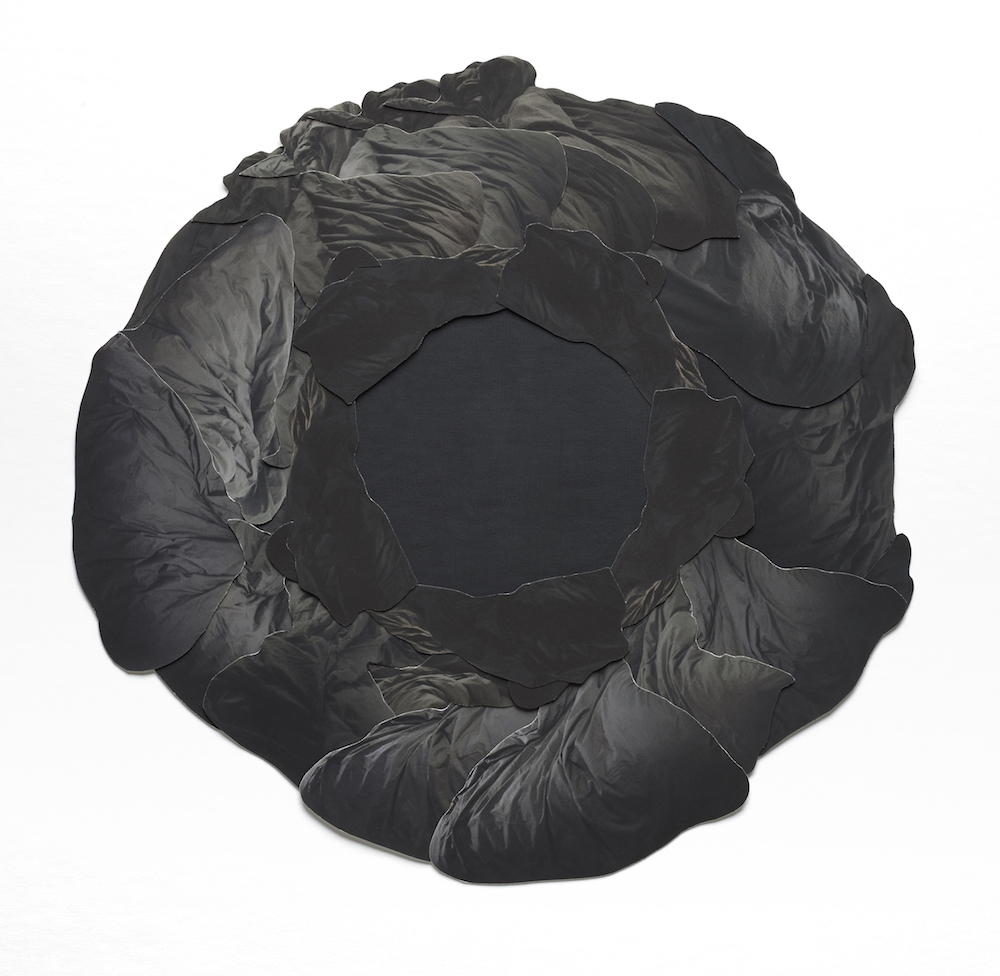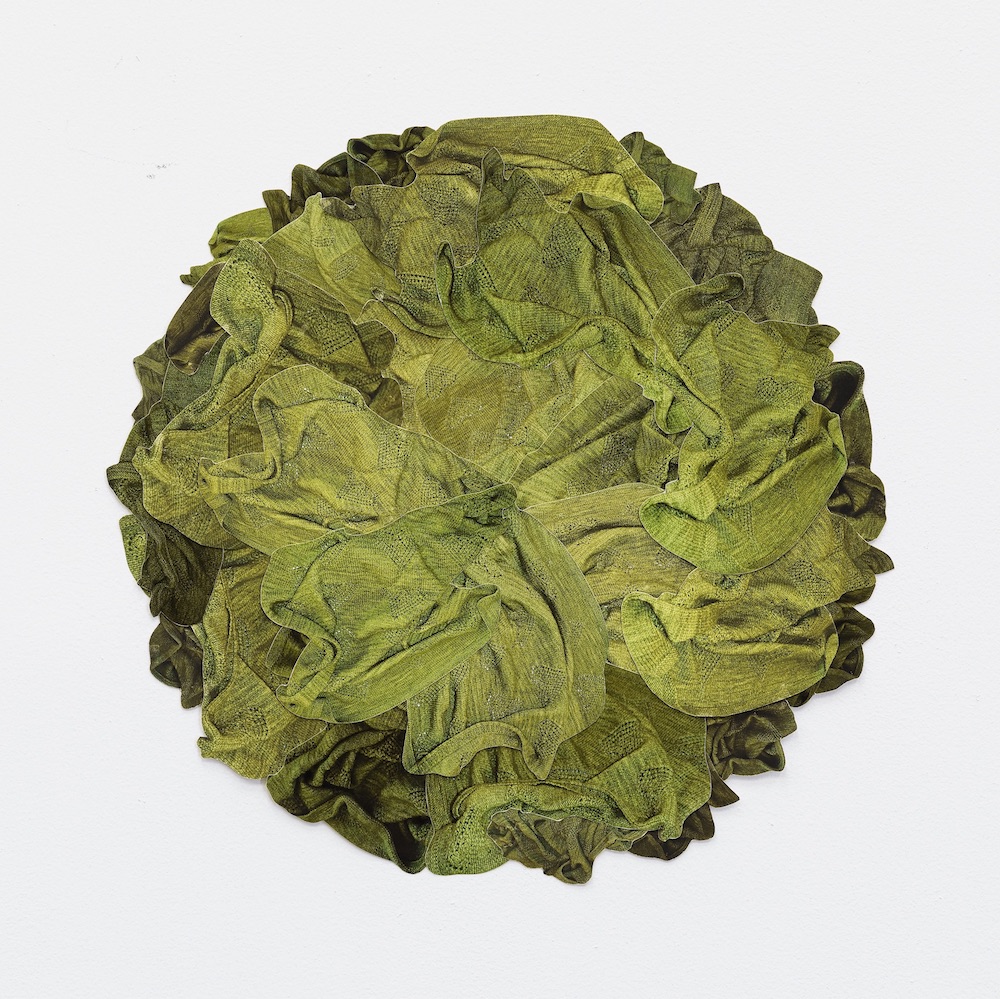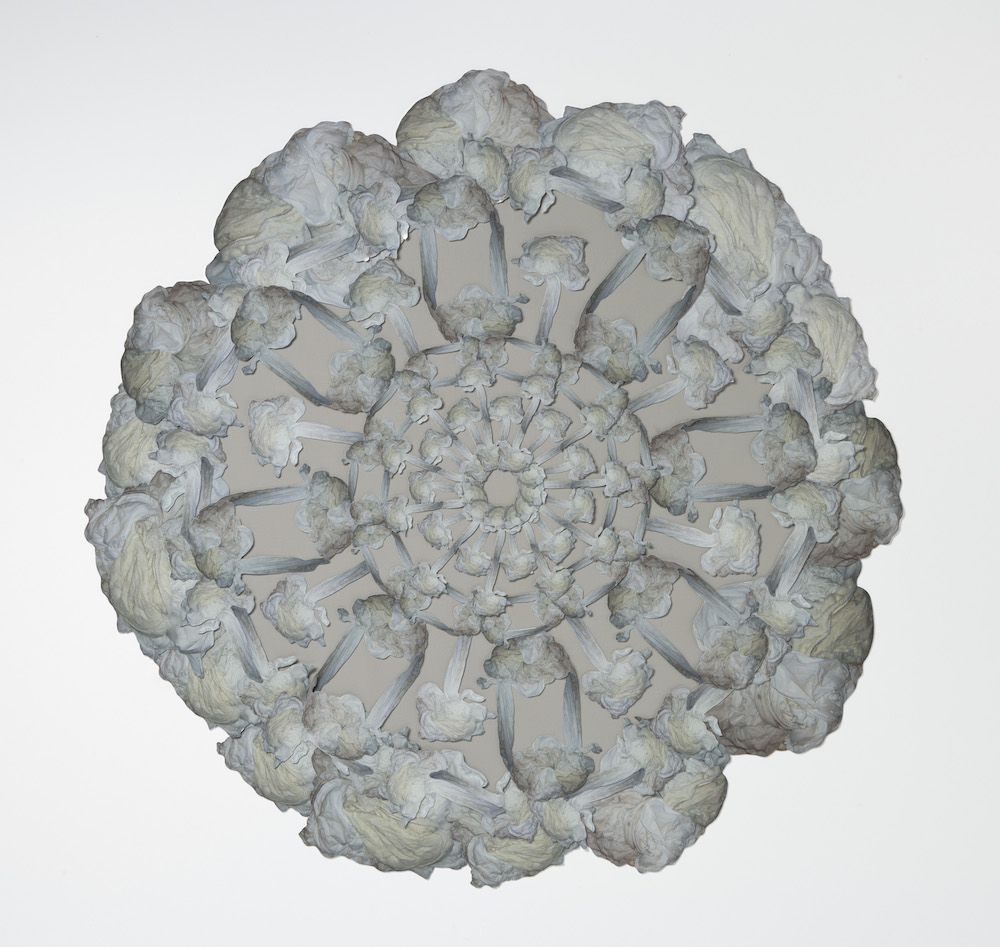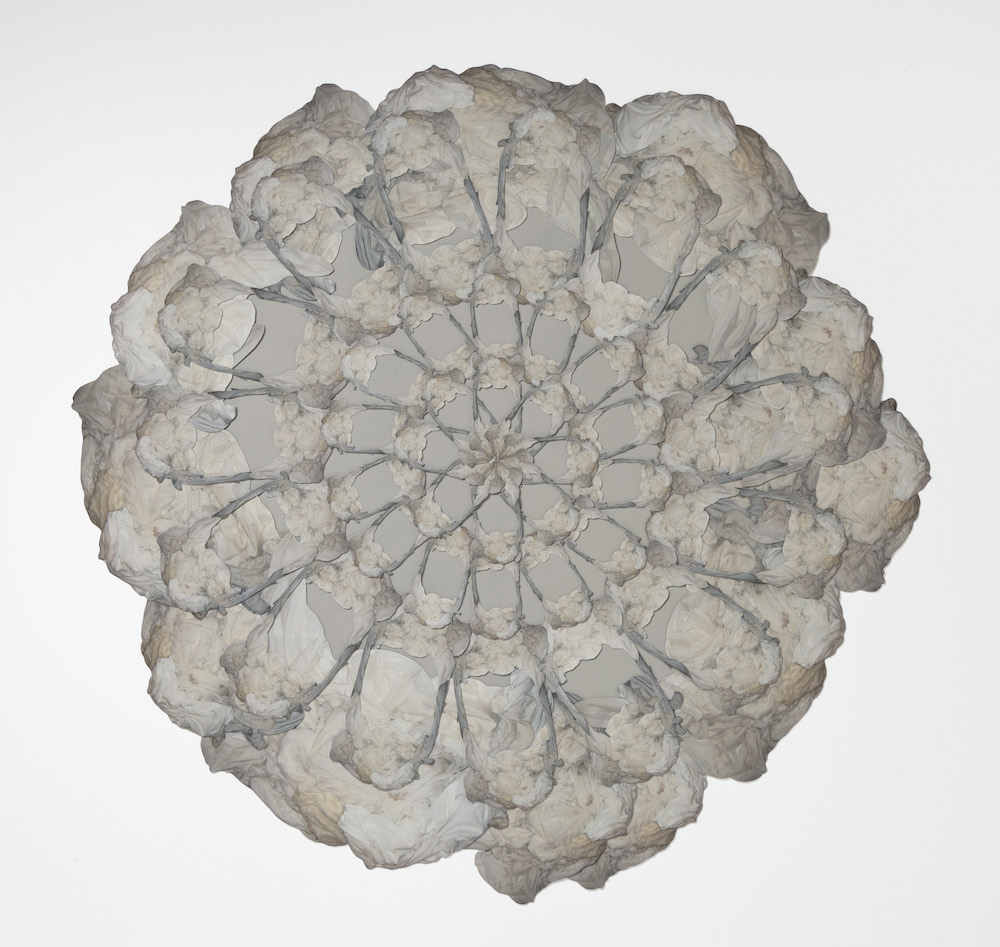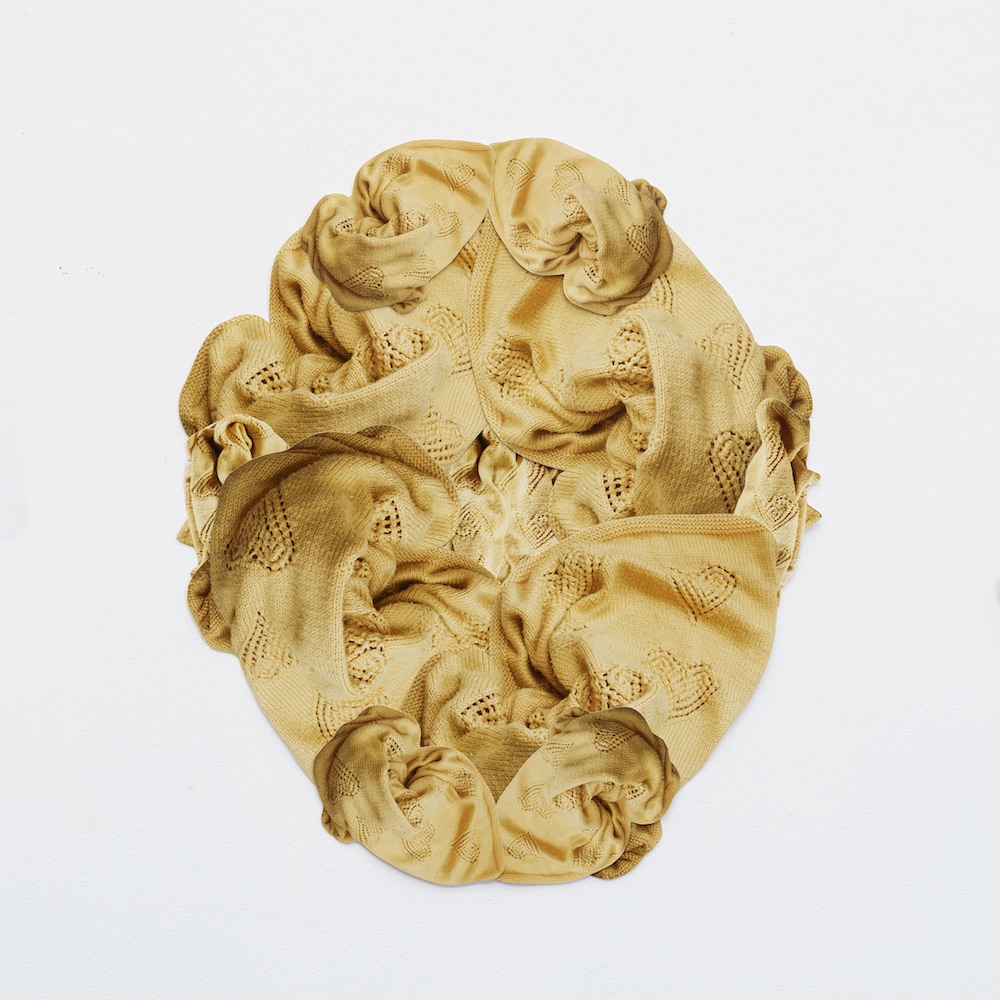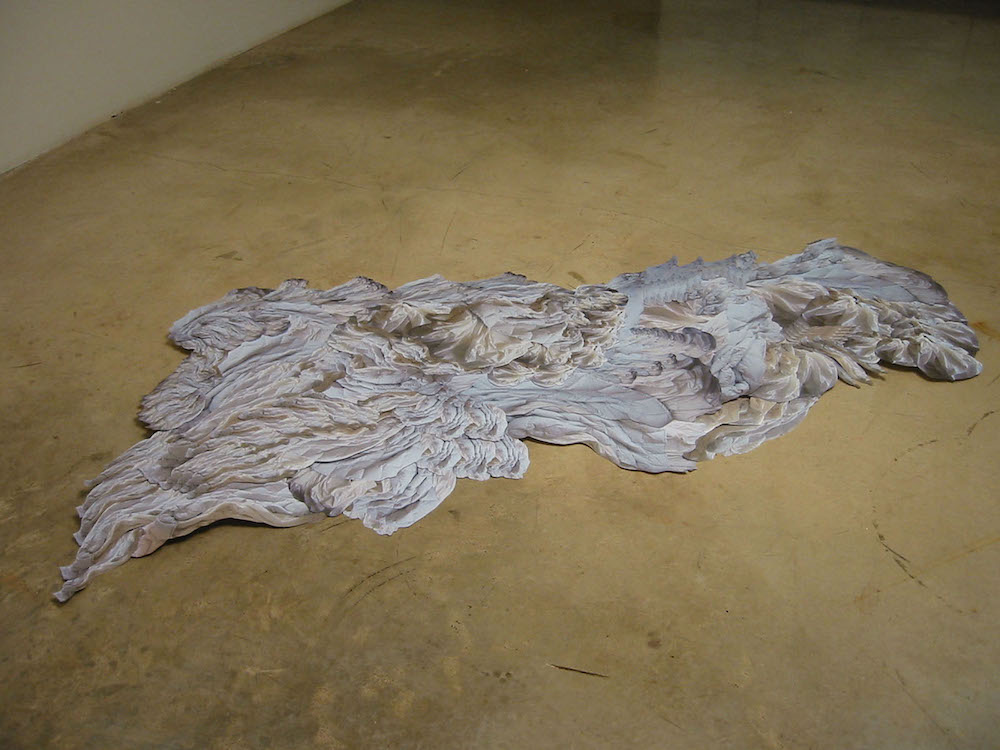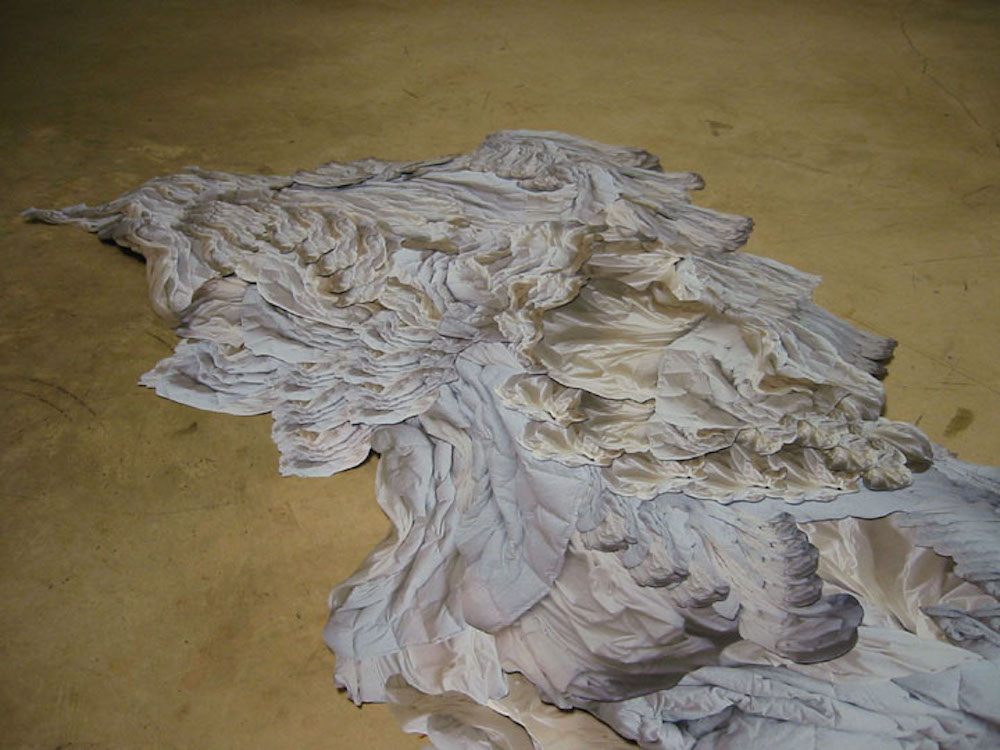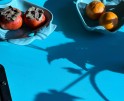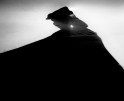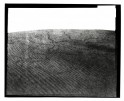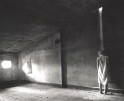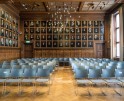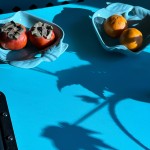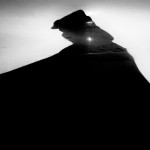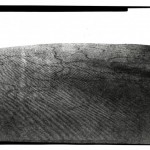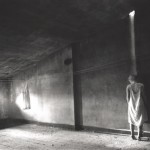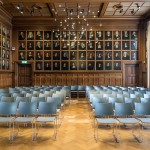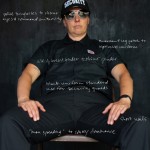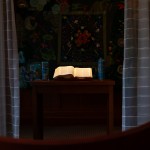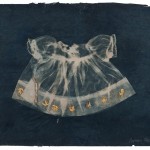Love’s Labors: Mira Burack: The Terrain of the Bed
Love’s Labors: Labor is often described as being of the body, and economists have spent centuries calculating formulas to explain its value. But there is a lacuna in all of these calculations, the invisible and the ephemeral—love. How do we calculate the value of love, and how did its meaning in popular culture become so romantic? This week’s artists reinforce labor’s physicality: at times they visualize acts of labor or a person who labors, and at times their pieces are a description of their own labor. Either way, they render the unseen—people, emotions, experiences, materials—visible. But through such work, they also assert that labor is not just a physical act: it’s spiritual, emotional, and intellectual, all of which can be mutually enriching. What does labor look like when it’s driven by love?
I met Mira Burack in 2018 when we were in a group exhibition together at form/concept gallery in Santa Fe. I left my 1 and 4-year-old daughters at home in the Midwest to be at the opening. Her young son moved through the exhibition with incredible speed and care as if he had been navigating such spaces always, and she cradled her infant daughter. During the artist talk, I watched her sway, back and forth, creating her own rhythm. That rhythm kept her daughter safe, asleep, and unaware that in addition to the movement, her mother was also holding a crowd. Enthralled, we listened as Mira described her process and the meaning of her work. I swayed with her, wondering what rhythm we will all keep when this time is over. I know what rhythm Mira will keep: it’s visual and envelopes one’s body and imagination with its breadth of care. Mira performs exhaustive and exacting labor to remind us all to rest. She describes this work as ongoing, never-ending—and given my own desperate need for respite, I can only hope she never stops. — Elizabeth M. Claffey
Mira Burack is an artist living in the mountains of New Mexico on the unceded land of Pueblo peoples. She received an MFA from Cranbrook Academy of Art and BA in Studio Art and Psychology from Pepperdine University. Burack was born in Boston, Massachusetts and grew up on the coast of Maine.
Her work has been exhibited nationally and internationally at the CUE Art Foundation in New York City, the School of the Art Institute of Chicago, the New Mexico Museum of Art, 516 Arts, Muskegon Art Museum, Cranbrook Art Museum, Media Knox Gallery in Slovenia, Art Gallery of Windsor in Canada, Kunstverin Wolfsburg in Germany, among others. She has lectured, taught workshops, and was a faculty member at the College for Creative Studies. She received a Community + Public Arts Detroit grant for The Edible Hut, a community space with a living edible roof. In 2020, she was selected for the Women to Watch exhibition at the National Museum for Women in the Arts and nominated for a Joan Mitchell Foundation Painters & Sculptors grant. She recently received SITE Santa Fe’s Spread 7.0 micro-grant for her Sleeping Huts project.
Burack spends her time learning from the high desert land, making, and enjoying her family. She currently has work in the exhibition, We Are All Guests Here, at Bridge Projects, Los Angeles. Follow Mira on Instagram @matterology
The Terrain of the Bed
The ground beneath my life and work is the grand, sensuous land where we live in New Mexico’s Ortiz mountains. Here, meaningful life experiences take place – sleeping on the soft earth with my family, gathering edible juniper berries and prickly pears, walking on the dirt and rocks in deep quiet. Between the expanse of mountains and sky, we are held. I strive to make my life a complete work of art, integrating the body, our essential possessions, relationships, home, and land into an aesthetic and meaningful whole that can be shared.
Throughout my practice, I have explored the bed as a place, a landscape, and a sleep terrain. The resting body acts as a portal into an intermediary, horizontal state; this is a fluid place, characterized by the sensuous movement of cloth. The bed is a rich site to contemplate materials, relationships, and the experience of rest.
I use photography, textiles, sculptures, and installations to capture the essence of these phenomena. Projects often incorporate hundreds of collaged photographs, painted surfaces, soft and found objects, botanicals, installations and communal gatherings that conjure a felt, lived experience.
When I begin to make, I look to my immediate environment, observing the material language of the high desert landscape and the nurturing, tactile experiences of our earthship home. Where does the land end and my body begin? How do the elements of daily life teach intimacy, engage the senses, provide comfort, heal, invite rest, and elicit pleasure?
During this technology-saturated era, and a vulnerable pandemic and social climate, I hope that my work creates memorable ways to re-attune to empathetic, intuitive, and sensual ways of being, and that embody connection to each other and our surroundings.
Elizabeth M. Claffey is an Assistant Professor of Photography at Indiana University in Bloomington, a 2019-20 Research Fellow at The Kinsey Institute for Research in Sex, Gender, and Reproduction and a 2012 William J. Fulbright Fellow. She has an MFA in Studio Art from Texas Woman’s University, where she also earned a Graduate Certificate in Women’s Studies. Before joining the faculty at IU, she participated in The Eddie Adams Workshop and freelanced for various organizations and publications including The Dallas Morning News, NBC Universal Studios, and the United Nations Women’s Fund. In 2017 her work was selected for a Center Santa Fe Director’s Choice Award by Kim Sajet of the National Portrait Gallery in Washington D.C. In 2021, she was awarded an Outstanding Junior Faculty Award and an IU Presidential Award for Research and Creative Activity. Elizabeth’s work has been exhibited nationally and internationally and focuses on identity, kinship, isolation, issues of the body, family history, and cultural/institutional practices. Follow Elizabeth on instagram: @photo_lizzie
Posts on Lenscratch may not be reproduced without the permission of the Lenscratch staff and the photographer.
Recommended
-
Photography Educator: Lindsay MetivierFebruary 21st, 2026
-
Jonathan Silbert: InsightsFebruary 19th, 2026
-
Olga Fried: Intangible EncountersFebruary 18th, 2026
-
Anne McDonald: Self-PortraitsFebruary 17th, 2026
-
Review Santa Fe: Leslee Broersma: Tracing AcademiaFebruary 11th, 2026


